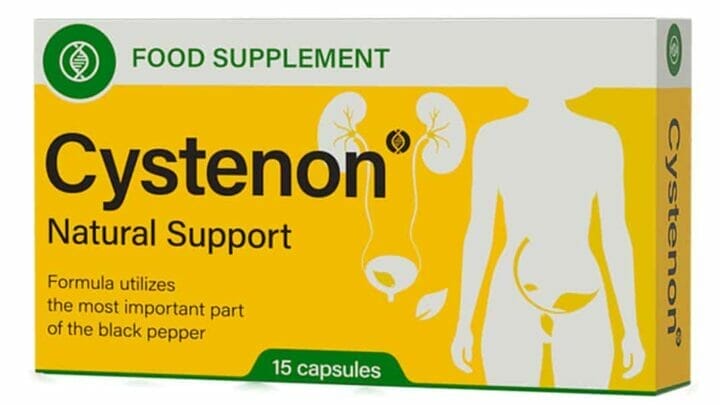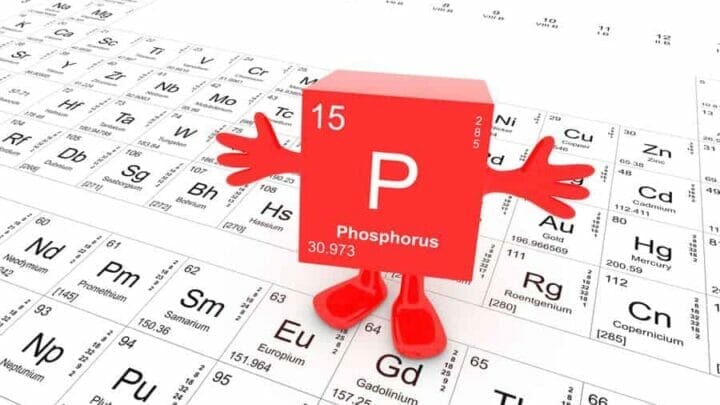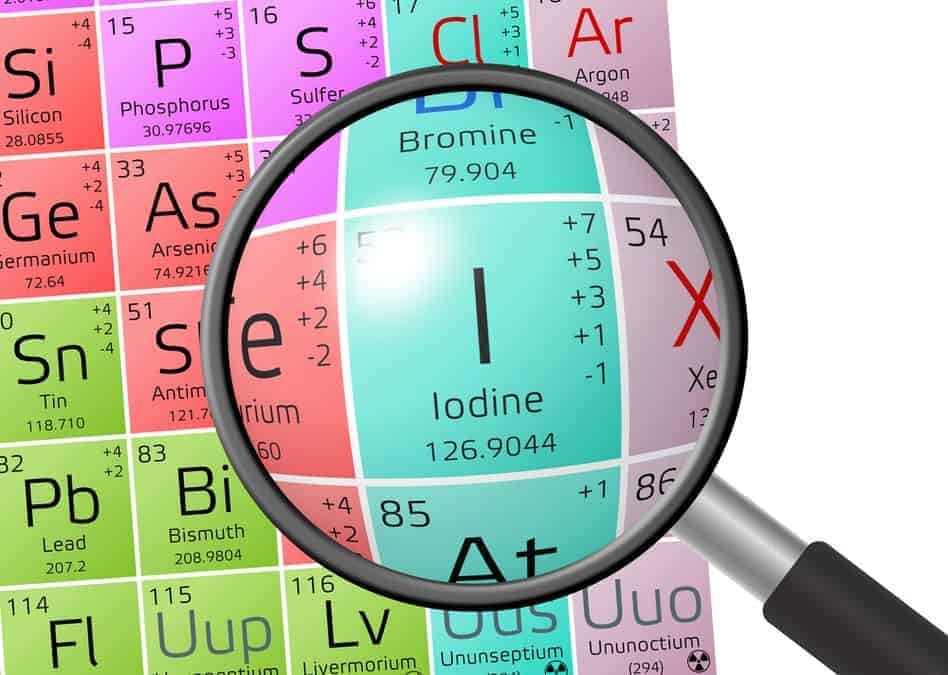
Iodine – properties, dosage, sources and effects of deficiency and excess of this element
One of the most important organs in the human body is undoubtedly the thyroid gland, which produces a number of hormones essential for its proper functioning. Its work, in turn, depends on a regular supply of nutrients, vitamins, minerals and other valuable elements necessary for it, and of these, iodine is the most important. So let’s not forget to replenish its possible deficiencies, and any deficiencies quickly reflect negatively not only on the health of the thyroid gland.
Contents
- 1 What is iodine, an element necessary for the functioning of the thyroid gland?
- 2 How much is the daily requirement for iodine in the human body?
- 3 Natural sources of iodine occurrence in food
- 4 What are the symptoms and health effects of iodine deficiency?
- 5 Is excess iodine also a health risk?
- 6 Are there contraindications to consuming iodine and does it have side effects?
- 7 What else is worth knowing about the importance of iodine for health?
What is iodine, an element necessary for the functioning of the thyroid gland?
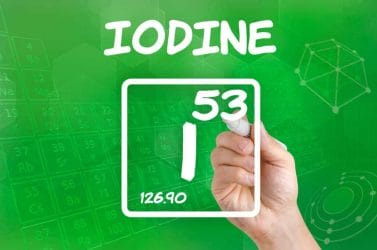
Iodine is a trace element designated in the Periodic Table by the symbol I, although one can still encounter the formerly used designation with the letter J, and its name comes from the Greek word “joeides”, meaning purple. It was discovered in 1812 by a French-born scientist, chemist Bernard Courtois, but the name it still has today was given to it a year later, after careful research by Joseph Loud Gay-Lussac.
It occurs in the form of small purple-black crystals or volatile, and in nature most iodine is found in seawater, which is why when we come to the sea we say that the air is even saturated with health-giving iodine. Unfortunately, residents of other regions of Poland must supply it in other ways, with food or dietary supplements that have iodine in their compositionto avoid many health problems, and this is why manufacturers take care of prevention and appropriate iodine content in table salt.
How much is the daily requirement for iodine in the human body?
The presence of this element in the human body is even essential, but only if we dose it properly. Not only deficiency, but also excessive intake of iodine can prove harmful, and if we do not know how to properly supplement iodine, we can always consult a doctor or professional nutritionist. The recommended amounts of iodine we should consume vary by gender and age and are:
- for infants – 110 μg;
- for children between 5 months and 1 year of age – 130 μg;
- for children between 1 and 6 years of age – 90 μg;
- for children between 7 and 9 years of age – 100 μg;
- for girls and boys between 10 and 12 years of age – 120 μg;
- for girls and boys between 13 and 18 years of age – 150 μg;
- for adult men and women – 150 μg;
- for pregnant women – 220 μg;
- for lactating women – 290 μg.
Natural sources of iodine occurrence in food

Unfortunately, not everyone has the opportunity to breathe fresh sea air saturated with iodine, and the use of dietary supplements for various reasons can also prove troublesome. That is why it is worth introducing into your daily diet products that have large amounts of this element in their composition, and most of it is found in:
- sea fish, such as pollock, herring, cod, mackerel or tuna;
- the already mentioned iodized salt;
- seafood,
- dairy products, especially in cottage cheese, fatty yellow cheese, kefir and milk;
- whole chicken eggs;
- spinach;
- broccoli;
- peas;
- beans
- cereals;
- nuts and almonds;
- yeast;
- oatmeal.
As you can see, the choice is quite large, and surely everyone will manage to compose an appetizing menu from these products to quickly replenish the resulting iodine deficiency. At the same time, you need to watch out for products that can quickly flush iodine out of the body, and these include soybeans, cabbage, kale and cauliflower.
What are the symptoms and health effects of iodine deficiency?
Iodine deficiency in the body should definitely not be taken lightly, and it is necessary to regularly check the levels of this element. Research conducted by the World Health Organization (WHO) has shown that its deficiency can be considered a disease of civilization already affecting nearly 2 billion people worldwide. This poses a serious threat not only to adults, but especially to children, whose bodies need iodine for proper development.
If we do not have the opportunity to check iodine levels in a laboratory at the moment, it is worthwhile to carefully observe our body, giving us all too clear signals that it is beginning to feel deficient in this important element. Our concern should first of all arouse:
- swelling of the neck in the area of the thyroid gland, characteristic goiter appearing on it, and the cause of its formation is excessive growth of the thyroid gland caused by the lack of an adequate amount of iodine;
- rapid weight gain, overweight and obesity, especially with proper nutrition, which can mean the beginnings of thyroid problems;
- weakening and loss of hair, the growth of which depends, among other things, on maintaining proper levels of hormones produced by the thyroid gland;
- changes on the skin, which becomes excessively dry, prone to irritation and peels off more quickly;
- a constant feeling of coldness that is also felt in high ambient temperatures;
- feeling of fatigue and weakness combined with lethargy;
- abnormal heart rhythm, and in the case of iodine deficiency, there is a dangerous slowing down of the heart muscle;
- abnormal work of the brain and nervous system, manifested, among other things, by increasing difficulties with memorization, assimilation of new information and a decline in overall mental abilities;
- decrease in thebody’s immunity, disrupted work of the immune system;
- decreased fertility.
Is excess iodine also a health risk?
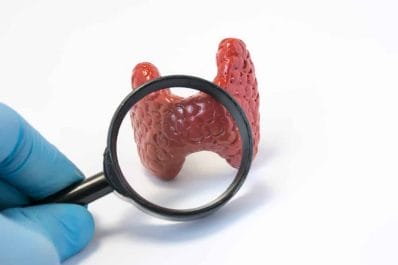
At the outset, it should be made clear that most often we are dealing with deficiencies of this element, its excess happens much less often, and this can be caused by low tolerance of the body or consumption of too many products containing iodine. However, its occurrence is always to be expected, and the primary negative effect is thedevelopment of dangerous thyroid diseases, itshyperthyroidism or the equally dangerous Hashimoto disease. Of course, there may also be other disturbing symptoms:
- digestive complaints, abdominal pain, vomiting or severe diarrhea;
- nervous hyperactivity;
- increased mucus secretion in the bronchi;
- overproduction of saliva;
- weight loss;
- a burning sensation in the throat;
- disturbances in heart rhythm;
- allergic skin changes;
- proteinuria.
As you can see, there really is something to worry about, especially since long-term excess iodine in the body can lead to the development of serious diseases, primarily of the thyroid gland. The risk of its hyperthyroidism is significantly increased, which means at the same time a dangerous increase in the hormones it produces, inflammation develops in it, and we must also take into account the possibility of developing thyroid cancer.
Are there contraindications to consuming iodine and does it have side effects?
Although iodine is considered an element that is even essential for life, there are some important contraindications that prevent its consumption. The most important are hypersensitivity to iodine, problems with its proper absorption, diseases of the thyroid gland, its inflammation or cancer, and the most common hyper- or hypothyroidism of this gland. As for the side effects, they are similar to those of exceeding the allowed daily doses, and in addition we may experience a strange metallic taste in the mouth and suffer from severe headaches and abdominal pain.
What else is worth knowing about the importance of iodine for health?
Over the years, many myths have grown up around the use of iodine, which are definitely worth dealing with so that they are not duplicated further. As for the misconceptions that many people have about this element, it is particularly worth emphasizing that iodine, unlikeunlike other elements, we do not store in the body, so it must either be supplied with food, dietary supplements, or we absorb it by breathing in the sea air.
It is true, on the other hand, that it plays the most important role in regulating the thyroid gland, along with vitamin A, vitamin C, vitamin D and selenium. Pregnant women should also supplement larger amounts of it, as it is essential for the proper development of the fetus, and the need for it also increases during breastfeeding. You should also watch out for excess chlorine and sodium in the diet, as they flush iodine out of the body and contribute to iodine deficiencies.
Sources:
- https://www.healthline.com/health/iodine-uses
- https://www.healthline.com/nutrition/low-iodine-diet-benefits-precautions-and-foods-to-eat


